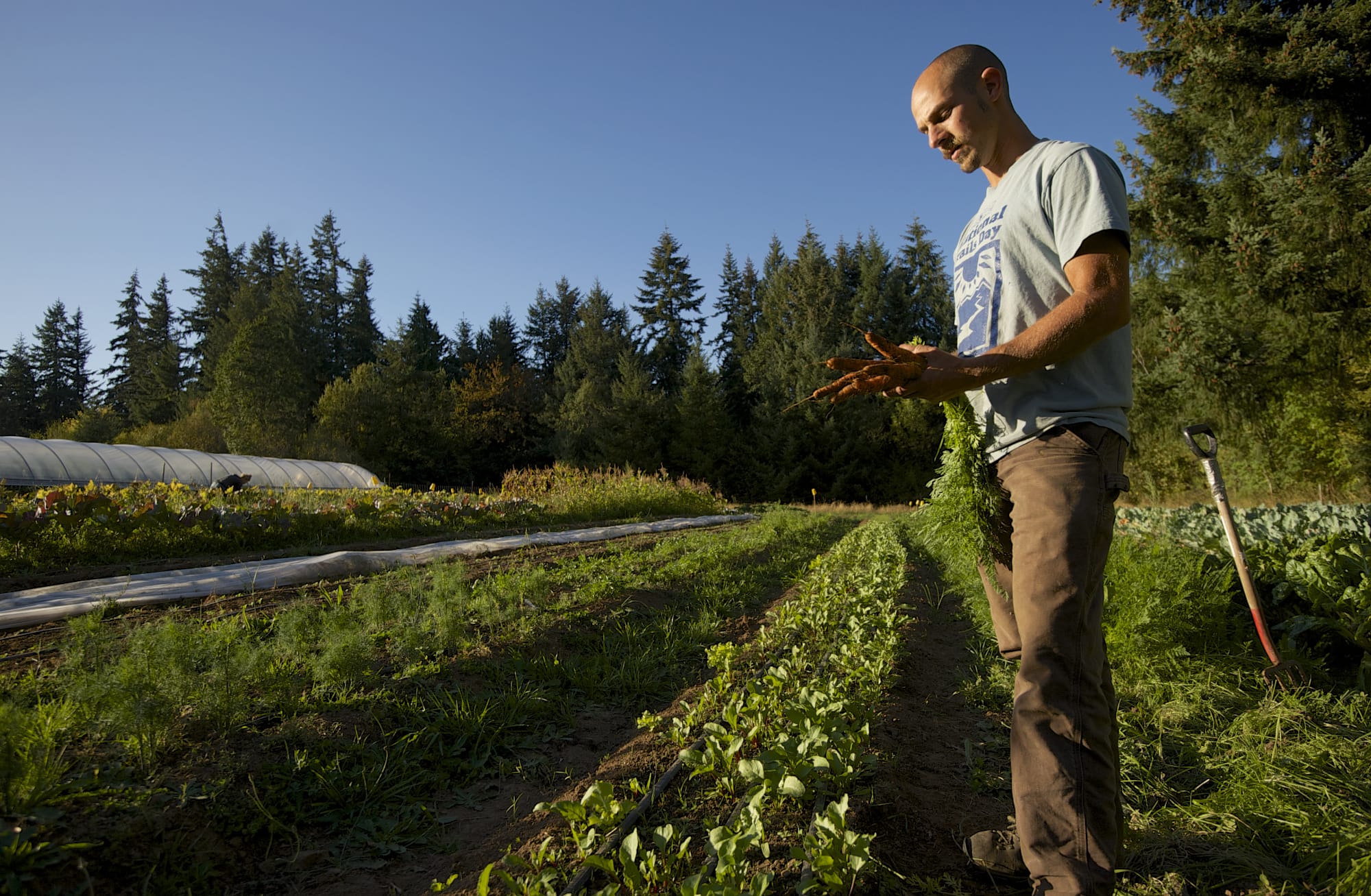Vancouver’s warmest summer on record has brought good news to local farmers.
Temperatures have found a sweet spot — warm, but not too warm, producing good yields for fruits and vegetables grown in Clark County.
“Virtually everything we have has been doing really well this year,” said Bill Zimmerman, co-owner of Bi-Zi Farms in the Glenwood area north of Vancouver.
That’s because while temperatures have been consistently high, they haven’t reached extremes. Vancouver has recorded 15 days above 90 degrees so far this year, but none above 100, according to the National Weather Service. Conditions have often landed in an ideal range for many crops, Zimmerman and other growers say.
“This 85-degree, 90-degree kind of weather is just about perfect,” Zimmerman said.
This year’s yields were also boosted by a favorable spring, said Charles Brun, horticulture adviser with Washington State University’s Clark County Extension. Warm conditions and near-average precipitation helped keep many crops on track early in the season, he said.
Too much rain in May, for example, can delay planting or introduce mold and other problems, Brun said. That’s been a big challenge for Northwest growers in past years. But not this year.
“If you have a really good month of May, that sets the stage for the rest of the year,” Brun said. “And we had a really good May.”
Among the crops that have fared well this year are berries, tree fruit and wine grapes, Brun said. The possibility of a warm, dry fall also bodes well for such late-season crops as pumpkins and corn, he added.
Indeed, Bi-Zi Farms’ pumpkins are already coming along nicely, Zimmerman said, as have other varieties of produce this season. Many of the farm’s berries had a particularly good year, he said.
“We had an absolutely fantastic crop of strawberries,” Zimmerman said. “It just seemed like we picked and picked and picked, and couldn’t believe how much we took off the strawberry fields.”
For Quackenbush Farm in Ridgefield, this year has brought similarly good results. The relatively small farm has fed 40 families through its community supported agriculture, or CSA, program, said Matt Van Wey, one of the four young farmers behind the operation. And the farm has had enough left over for regular donations to the Clark County Food Bank throughout the season, Van Wey said. (Its 200 or so tomato plants have produced about 150 pounds of tomatoes per week recently, he said.)
This season has been more of a learning experience than anything for Quackenbush Farm, Van Wey said. The farm is in its first year and doesn’t have any past seasons to measure its current yields against.
“It’s hard to know exactly what the hot weather has done, or what the land is telling us,” Van Wey said. “We’ll learn a lot more the second year, next year.”
Vancouver’s average summer temperature, including both daytime highs and overnight lows, was 71.6 degree as of Wednesday, according to the weather service. That’s higher than any other year since the city’s records began in 1890. And the trend has been driven largely by warmer-than-usual nights, according to the weather service.
Though the overall effect has been positive, the warmth has brought some difficulties. Mild nights and high humidity may have contributed to the powdery mildew that took out an entire planting of zucchini and some summer squash at Bi-Zi Farms earlier this year, Zimmerman said. The disease has also affected some pumpkins, he said. At Quackenbush Farm, brassica-family vegetables including cabbage, broccoli and cauliflower have struggled at times, Van Wey said.
Bi-Zi Farms grows a wide variety of fruits and vegetables, which makes it easier to absorb a bad year for one crop or another, Zimmerman said. And farmers are used to ups and downs, he said.
Much of Clark County is currently considered “abnormally dry” by the U.S. Drought Monitor, but below-normal precipitation hasn’t significantly affected most local growers.
That’s a far cry from the “exceptional drought” that has crippled California and other parts of the western U.S.
Zimmerman isn’t sweating the precipitation deficit in the Northwest. No matter how dry it gets in this region, he said, “it will always go back to rain some time.”




